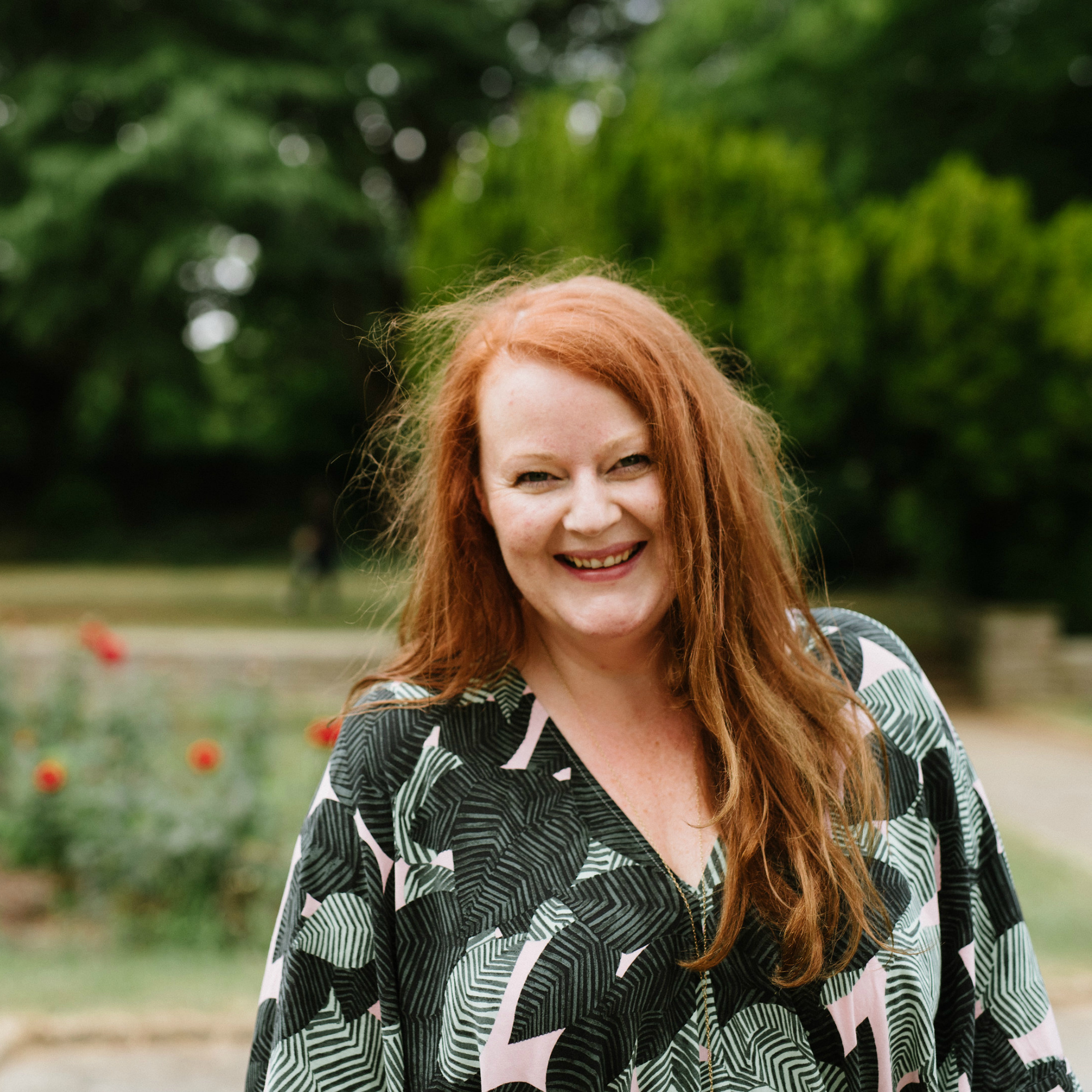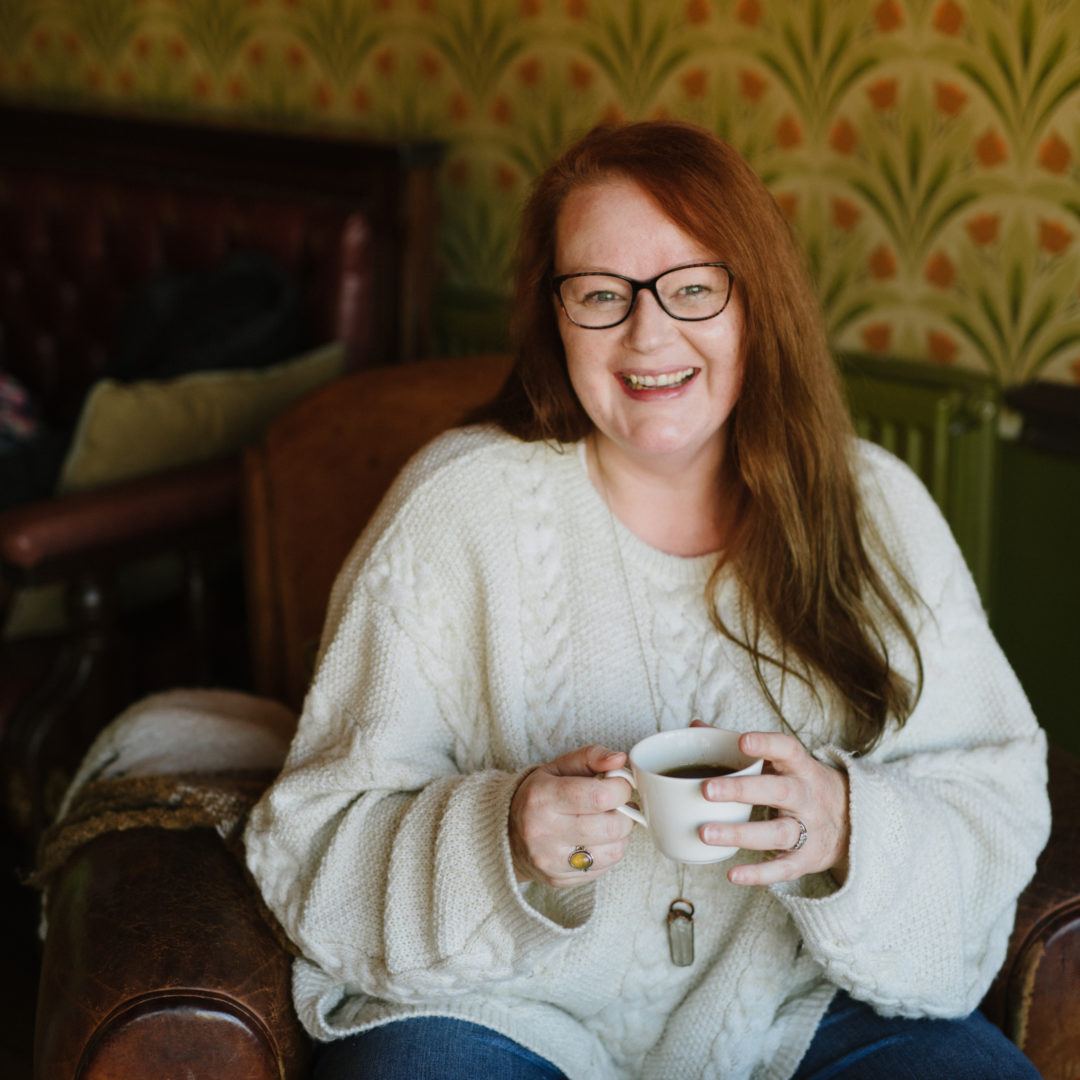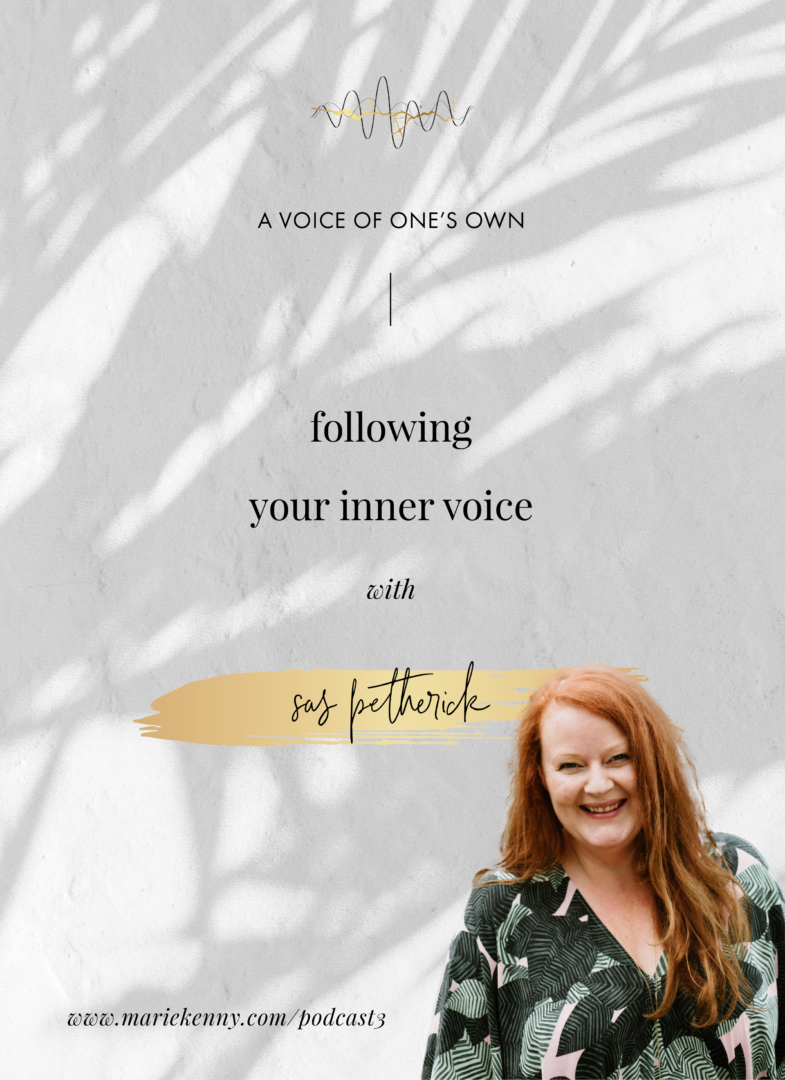
Photo credit: Katrina Bartlam
There are people who land into your life almost by accident and literally change your life. Sas Petherick is one of these people, and one of my favourite humans.
Sas is a self-doubt researcher, coach and host of the brilliant Courage and Spice podcast. She also mentors coaches (I’m one of them) and other brave-hearted business owners. I absolutely love her approach to coaching and life in general, and I am so lucky to have been under her guidance as I venture onto this path too.
You can hear the full story in episode one of this podcast, but in short, she appeared in my life at just the right time, like a patriarchy smashing version of the fairy godmother.
We recorded this conversation last November at her home in Bristol. It felt quite unreal to finally met Sas in person after working with her as my coach for over a year before that. This conversation is infused with her warm, generous personality and packed with so much wisdom!
Sas’s words:
+ On using her voice growing up
“I was saying too many things, asking too many questions, and that wasn’t welcome. So I learnt quite quickly that my voice was something that I needed to manage constantly. That it wasn’t safe for me to be fully myself. It was kind of difficult to feel like so much of my voice was inside of me.”
+ On being an immigrant
“Becoming an immigrant myself coming to the UK I always felt like my voice marked me out as different. It’s made me see the label of ‘immigrant’ in a very different light. I’ve really learnt to appreciate that we can have lots of assumptions about who people are from the way they look and from perhaps their voice as well, but often that’s the least interesting thing about a person.”
+ Tūrangawaewae
“It means your place to stand. It’s about your sense of belonging, your sense of place in the world. As someone who is from one place but lives in another place, that idea of finding my Tūrangawaewae has become increasingly important to me.”
+ On her writing voice“
“My writing voice in book form feels a bit clunky. It doesn’t quite feel natural yet. It’s quite frustrating having written over the last decade to find that my online voice is slightly different to what wants to come through in book form.
I’m finding it’s quite an exhilarating challenge as well that feels to me, for someone who always has seen books as sacred text, I want my voice added to the canon. So I’m prepared to go through this discomfort and frustration because I’m hoping that by the end of it it will be worth it.”
+ On ignoring the voice inside
“I worked really, really hard to prove myself and I denied a lot of my femininity and my feminine qualities. It didn’t seem to me like they were valued in that workplace so I sort of hid a lot of my true nature to survive in that environment. And there was a lot of pain involved in following that path and really ignoring that voice. It felt like there was such a huge price to pay if I started to listen to it. I had no idea who I would be. So I was almost running away from it most of the time, running away from myself, which is a bloody hard thing to do.”

+ On the voice of self-doubt
“Whatever it is that you are bravely contemplating, the dreams that you have for yourself, that voice that’s saying it’s too scary is the voice of self-doubt and it’s trying to protect you from some kind of risk. And if you can find a way to kind of take that by the hand, and treat it like you would a small child because often that’s where it originated from, it can radically and quick quickly shift that dynamic, so that you actually start speaking to yourself like you would a small child, who is frightened.”
+ On using your voice politically
“There is nothing you can do that is not political, and there is no aspect of yourself that is not influenced by politics. But how you choose to see that is really an indication of how privileged you feel.”
+ On shadows
“It’s often the thing that our self-doubt is trying to protect us from. So we will often mute ourselves, silence ourselves, ignore parts of ourselves because of the risk that we believe that those parts will present to the world. But it’s also important to remember that we have golden shadows too. We have parts of ourselves that we put into shadow because we believe they’ll be too much. So the bright shiny parts of us, the inquisitive, the powerful, the creative, the chatty, the curious parts of us, we put into shadow too. We think, actually if we reveal our brightness, our light to the world, that somehow that will be unacceptable too. That will risk our sense of belonging.”
+ On honing your voice
“Go gently and listen to your own voice first. Tell yourself the truth, even if that is listening to that quiet whisper that’s inside of us that might come to us when we’re quiet and alone. Rather than reach for your phone, reach for yourself. Giving yourself some attention is hugely important. However you access it that is the voice to really pay attention to.”
You can connect with Sas:
On her website
On Instagram
Courage + Spice podcast
And for more conversations, you can subscribe to A Voice of One’s Own here:
Apple Podcasts
Spotify
Stitcher
Other voices mentioned
Economist Charles Eisenstein
Russell Brand’s interview with Dr Gabor Maté
Activists and social justice warriors on Instagram:
Sas’s dream dinner party poetry people:
Intro quotes by
Oprah Winfrey
Maya Angelou
Nina Simone

Comments +